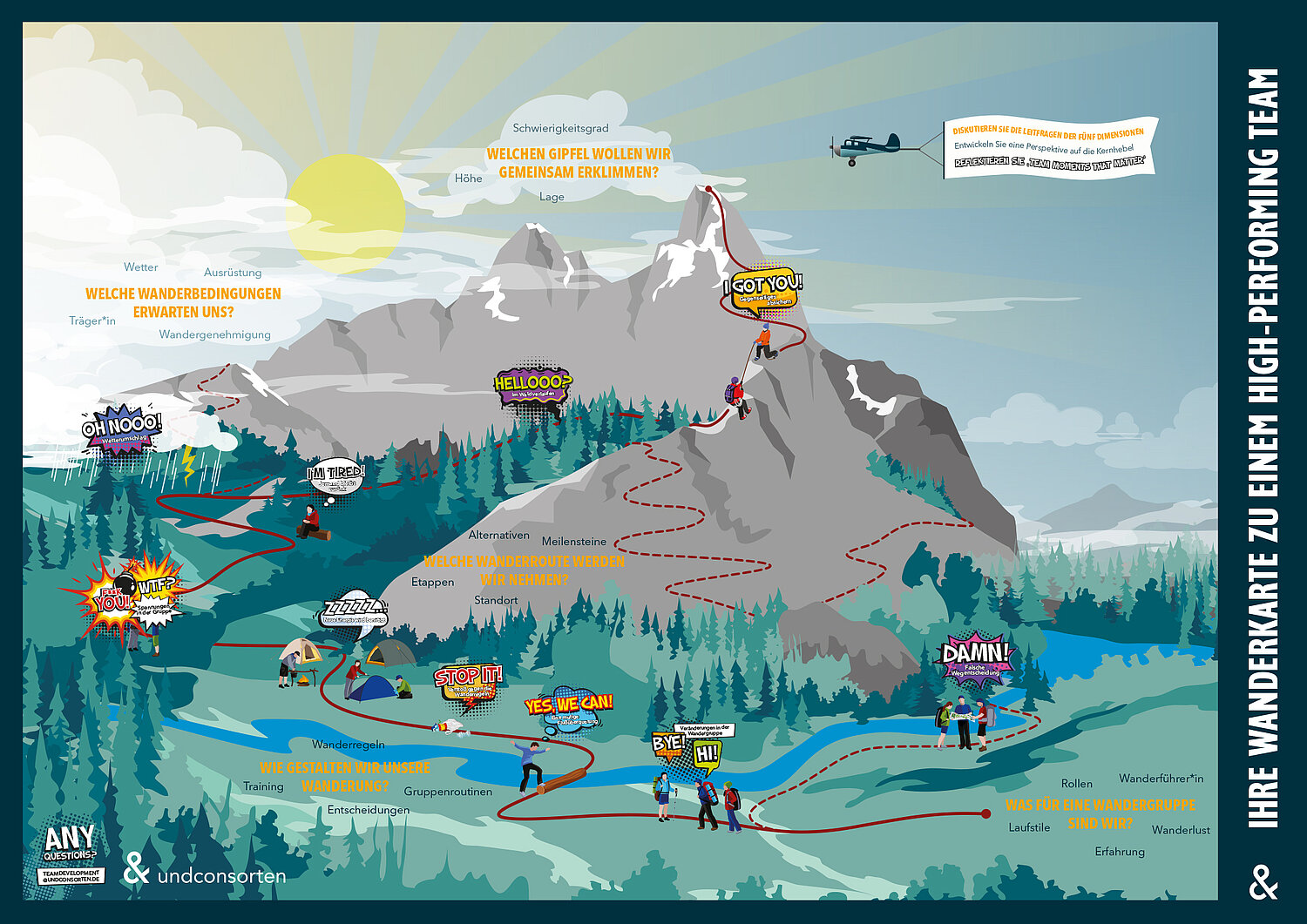
How-To-Guide: Real high-performing teams
Successful teams - what's the problem?
Teams are better researched today than ever before. From the optimal number of team members to the most important criteria for effective teams, we actually know what it takes to have a high performing team. Teams are better than individuals for countless reasons and are the cornerstone of any organisation.
Although we know all this, we still see dysfunctional teams time and time again. Instead of trust, these groups are characterised by competition, a lack of alignment and even genuine mistrust. Such constellations are of course particularly pronounced and serious in organisational management teams. There are usually three main reasons for this:
- There is simply not enough time for real team alignment in the hectic day-to-day.
- There is a lack of understanding of how to form a "high-performing" team from individuals.
- All team members assume that they are professionals and know how to work well together.
From our point of view, it is absolutely clear that you should take the time to build a high-performing team. However, companies can learn from areas where a well-functioning and coordinated team is essential for survival: professional mountaineers would never tackle a challenging summit without a precise briefing and coordination within the team. Challenging endeavours require systematic preparation - whether on the mountain or in the company. Teams should therefore systematically ask themselves the following 5 questions in order to make the next summit attempt possible. The success of their work could depend on it!
High Performing Teams - What you should ask yourself
- What kind of team or hiking group are we ("who")? What about our fitness, experience and wanderlust? In high-performing teams, the members know the different values, preferences and behaviour patterns of the others. The mountain guide, in turn, exemplifies a growth mindset, thus developing the team and serving as a role model.
- Which summit do we want to reach exactly? In terms of content, questions such as strategy, organisation and culture need to be clarified. Above all, however, it is about your own level of ambition, the altitude, difficulty and significance of the mountain. Himalayas or Alps, Jochberg or Eiger North Face (i.e. "what" and "why").
- What hiking conditions await us? Each team finds itself in a specific systemic context that forms the framework for the hike ("wherein"). Good teams adapt their equipment, support and guidance to the conditions in the best possible way. High-performing teams also do this with the familiar "look ahead".
- Which route do we want to take ("how")? What is the best route to the destination given the environment and weather forecast? What stages and milestones lie ahead of us? What is our alternative route if things develop differently along the way? Good teams have a common, clear and dynamic roadmap.
- What is our modus operandi ("how")? What are our values, rules and routines? When and how do we give each other feedback? How do we make decisions? What training do we need? Successful teams develop a mode of collaboration that allows them to synchronise individual skills and contributions in the best possible way, while at the same time promoting the personal development of its members.
A systematic approach to improving team performance means taking these questions and answers from team members seriously. Regular reflection within the team, e.g. integrated into existing routines, ensures that new tasks are also tackled systematically. We hope that our hiking map will help you find new paths and reach unimagined peaks. With this in mind, we wish you all the best: Berg Heil! Mountain free!
Our High Performing Team hiking map
Download the hiking map as a PDF here.






